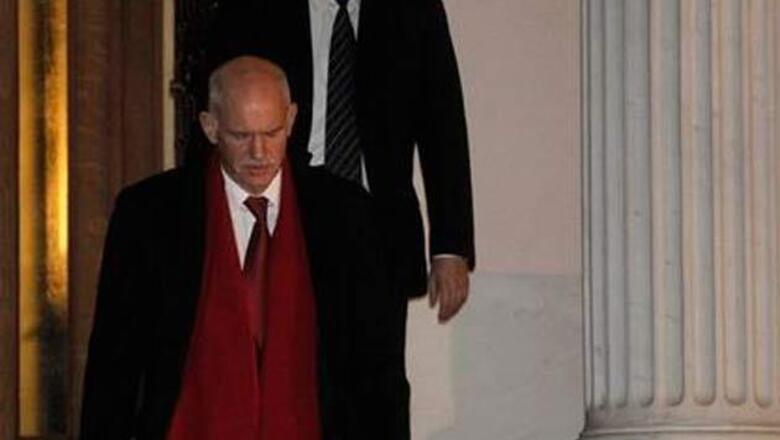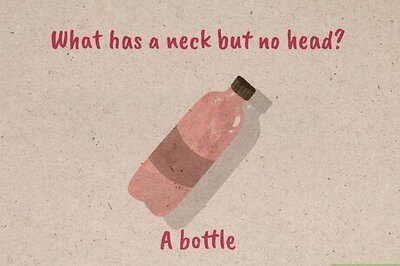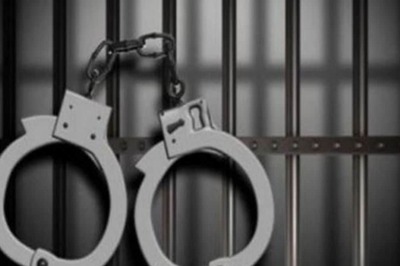
views
Brussels: Greece gave in to more painful spending and job cuts on Thursday, only to have European ministers question whether they were enough to deliver a euro130 billion bailout and stave off bankruptcy.
Greece's new austerity plan, which makes sharp cuts to the minimum wage and thousands of public-sector jobs, ignited fresh criticism from unions and the country's deputy labor minister, who resigned in protest after the deal was reached overnight following more than eight hours of talks. But finance ministers from the other 16 countries that use the euro indicated that still more severe steps might be necessary.
"The agreement, as far as I understand, is not at a stage where it can be signed off," German Finance Minister Wolfgang Schaeuble said as he arrived at the Brussels meeting. He said no decision on the new bailout was expected by Thursday evening.
A European official told The Associated Press he still saw 10 to 15 issues before the deal could be concluded, including doubts that Greece could lower its debt level down to 120 per cent of its annual economic output by 2020 and a number of other requirements that the country would have to meet before it gets more aid.
Greece is under immense pressure to reach a rescue deal. On March 20, it has to redeem euro14.5 billion in bonds - money which it doesn't have. The country's total debt is euro350 billion - equivalent to 160 per cent of its annual economic output - and unsustainable for a country in its fifth year of recession.
Greek Prime Minister Lucas Papademos earlier on Thursday said that all major party leaders in the country's coalition government had backed a new round of painful spending cuts, including a 22 per cent cut in the minimum wage, firings of 15,000 civil servants and an end to dozens of job guarantee provisions. A Papademos spokeswoman said the leaders also found an alternative for an estimated euro300 million ($400 million) in pension cuts that they had previously rejected.
Papademos said he worked out the cuts with the so-called "troika" of bankruptcy creditors who sought them - the European Union, the European Central Bank and the International Monetary Fund - and that the talks "were successfully concluded."
The support of all major parties was a key demand from Greece's international creditors, who had remained elusive during talks over the past weeks.
Schaeuble's comments, which were supported by other eurozone officials, indicate that Greece remained under the threat of bankruptcy despite the deal.
A forced bankrupcty would likely lead to Greece's exit from the euro common currency, a situation European officials say would hurt other weak countries like Portugal, Ireland and Italy. Financial analysts fear an uncontrolled default could trigger a chain reaction similar to the financial meltdown that followed the 2008 collapse of US investment bank Lehman Brothers.
Speaking in Frankfurt, European Central Bank president Mario Draghi left open a legal door for the ECB to help lighten Greece's debt load at some point, saying the bank could distribute profits it stands to make on its Greek bonds to member states.
Greece is also under pressure to implement a complex swap deal with private bondholders designed to cut its debt by some euro100 billion.
When eurozone leaders tentatively agreed on a second bailout for Greece in October, they set several key parameters that would have to be met for country to get more aid.
Those included bringing Greece's debt level down to 120 per cent of annual economic output by 2020, limiting official rescue loans to euro130 billion and getting firm approval from all Greek political forces that new spending cuts and reforms would actually be implemented.
"Those general requirements are not fulfilled yet," Schaeuble said.
As the largest economy in Europe, Germany is a leading force in the group of 17 countries that use the euro - the so-called eurozone - wielding its considerable economic clout to steer decision-making and policy among the 17 euro countries.
Another European official, backing Schaeuble's comments, said: "There are a lot of questions on the substance of the program."
The official said he still saw 10 to 15 issues before the deal could be concluded, including doubts that the parameters set last fall can be reached and whether the promised reforms would really restore the competitiveness of Greece's economy. The official spoke on condition of anonymity because of the sensitivity of the negotiations.
Greece is expected to rush the new austerity measures through parliament by late Sunday, but Papademos' government is facing growing dissent from the majority Socialist party, which has seen public support in opinion polls drop to single figures.
Unions called for a 48-hour strike for Friday and Saturday in opposition to the new cuts, while Yiannis Koutsoukos, the deputy labor minister who quit Thursday, accused debt inspectors of using "shameless and blackmailing tactics" with the government.
And conservative leader Antonis Samaras insisted that Papademos call a spring general election - a move that could make it more difficult for coalition parties to work together.
Almost two years of austerity have taken their toll on Greece. Unemployment reached a record 20.9 per cent in November, up from 13.9 per cent a year earlier, with more than 1 million people without a job. In the 15-24 age group, unemployment has spiked to 48 per cent.
In addition to the austerity deal, the eurozone also still needs to sign off on a debt swap with banks and other private investors, which Greece's Finance Minister Evangelics Venizelos planned to present to his eurozone counterparts at Thursday's meeting.
Representatives for the Institute of International Finance, which is leading the debt swap talks for the private creditors, were also in Brussels.
Last week, an EU official said that even taking into account the debt forgiveness and planned austerity measures, a gap of some euro15 billion remained to reach the October targets.
The EU hopes that the ECB, which holds a significant amount of Greek bonds, will contribute to closing that gap, but the central bank has so far dodged questions on whether it will participate.




















Comments
0 comment